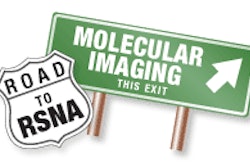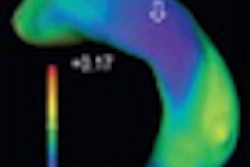Sunday, November 28 | 11:05 a.m.-11:15 a.m. | SSA18-03 | Room S505AB
In this presentation, researchers from the University of Duisburg-Essen in Duisburg, Germany, will compare diffusion-weighted MRI with FDG-PET/CT for breast cancer staging."There are some recent publications proposing MR diffusion-weighted imaging alone as a possible substitute for PET/CT in cancer staging," said co-author Till Heusner, MD, who will present details at RSNA 2010 in Chicago. "This idea sounds very interesting, considering that diffusion-weighted imaging is a very fast MR available sequence without the need for any contrast material or ionizing radiation due to the injection of radiotracers."
After a review of 20 breast cancer patients who underwent whole-body FDG-PET/CT and 1.5-tesla diffusion-weighted MR imaging, Heusner and colleagues found that diffusion-weighted MR imaging could not be used as an alternative staging modality in place of FDG-PET/CT for whole-body breast cancer staging due to its low accuracy.
"Though whole-body FDG-PET/CT goes along with substantial radiation exposure, it shaped up as the more accurate method for metastases detection in breast cancer patients -- an overall accuracy of 98%, compared to 76% for diffusion-weighted imaging," Heusner noted. "One important conclusion is that FDG-PET/CT on the one side has its price but, on the other side, supplies the investigator with accurate results."
The next step for Heusner and colleagues is to define the diagnostic accuracy of whole-body MRI compared to FDG-PET/CT for whole-body staging in several subgroups of breast cancer patients.




















